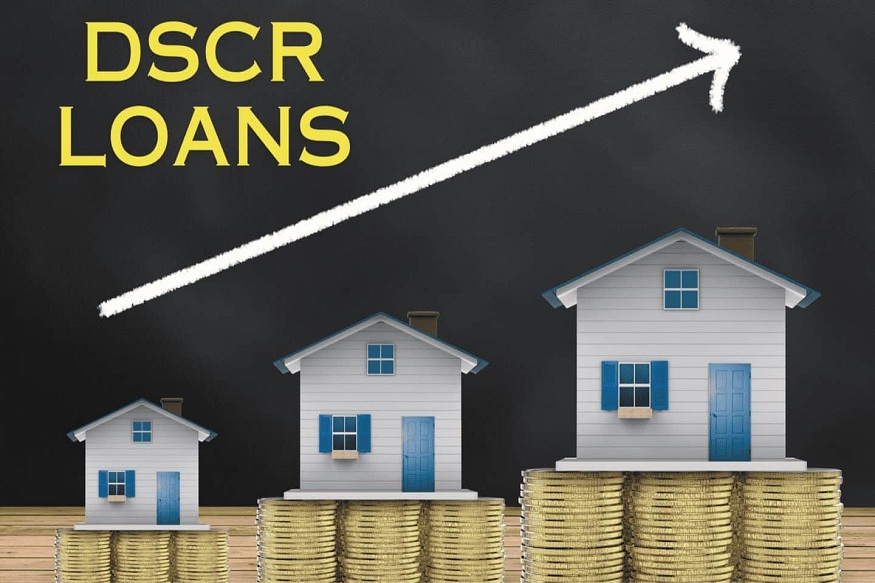Financing investment properties can be complicated, especially for those who don’t have a traditional income or own multiple properties. Traditional mortgages rely heavily on W-2s, tax returns, and credit scores, making it difficult for many investors to qualify. A DSCR loan, or Debt Service Coverage Ratio loan, offers a practical alternative by focusing on a property’s income potential rather than the borrower’s personal finances. This allows investors to secure funding more efficiently and expand their real estate portfolios with confidence.
Understanding DSCR Loans
A DSCR loan is based on the Debt Service Coverage Ratio (DSCR), a metric that measures a property’s income against its debt obligations. The formula is:
DSCR=NetOperatingIncome(NOI)AnnualDebtServiceDSCR = \frac{Net Operating Income (NOI)}{Annual Debt Service}DSCR=AnnualDebtServiceNetOperatingIncome(NOI)
- Net Operating Income (NOI): Rental income minus operating expenses
- Annual Debt Service: Total yearly mortgage payments including principal and interest
For example, if a property earns $110,000 in NOI and the annual debt payment is $88,000, the DSCR is 1.25. A ratio above 1.0 indicates that the property can comfortably cover its debt, making it appealing to lenders.
Why DSCR Loans Are Beneficial
DSCR loans are particularly useful for investors who might not qualify for traditional financing. Benefits include:
- Property-Based Approval: Lenders focus on the property’s income, not the borrower’s personal finances.
- Entity-Friendly Financing: Many DSCR loans allow properties to be purchased through LLCs or corporations.
- Flexibility for Different Property Types: Single-family homes, multi-family units, and short-term rentals often qualify.
- Simplified Documentation: Less personal paperwork is required, speeding up approval.
Key Advantages of DSCR Loans
- No Personal Income Verification
Borrowers don’t need W-2s, tax returns, or pay stubs.
- Faster Approval
Underwriting focuses on rental income, reducing processing time.
- Scalable for Investors
Approval depends on property income, allowing acquisition of multiple properties.
- Liability Protection
Financing through an LLC or corporation can provide liability and tax benefits.
- Eligibility for Various Property Types
Single-family homes, multi-family units, and short-term rental properties are typically eligible.
Typical DSCR Loan Requirements
Even though DSCR loans are flexible, most lenders require:
- Minimum DSCR Ratio: Usually 1.2 or higher
- Down Payment: Typically 20–25%
- Credit Score: Minimum 660
- Property Condition: Must be income-producing and ready for rent
- Loan-to-Value (LTV): Typically 75–80%
DSCR Loan Example
Suppose an investor purchases a four-unit rental property:
- Monthly rent: $11,000
- Monthly operating expenses: $3,500
- Annual NOI: $90,000
- Annual debt payment: $72,000
DSCR=90,00072,000=1.25DSCR = \frac{90,000}{72,000} = 1.25DSCR=72,00090,000=1.25
A DSCR of 1.25 demonstrates the property can comfortably cover its debt, making it an ideal candidate for a DSCR loan.
DSCR Loans vs Conventional Mortgages
| Feature | Conventional Mortgage | DSCR Loan |
| Approval Basis | Borrower’s income & DTI | Property rental income |
| Documentation Required | W-2s, tax returns, pay stubs | Lease agreements, NOI statements |
| Approval Speed | Weeks to months | Faster, simplified |
| Ownership Options | Personal name only | LLCs or corporations allowed |
| Best Suited For | Homeowners | Real estate investors |
Potential Risks
DSCR loans provide flexibility but come with considerations:
- Interest Rates: May be slightly higher than conventional loans
- Vacancy or Income Risk: Reduced rental income can affect DSCR
- Minimum DSCR Requirement: Properties must meet lender thresholds
Investors should maintain reserves and plan for potential vacancies to reduce risk.
Who Should Consider DSCR Loans
- Real estate investors growing rental property portfolios
- Self-employed borrowers or those with irregular income
- Short-term rental operators
- Entrepreneurs separating personal and business finances
DSCR loans make financing income-producing properties accessible, even when traditional mortgages are not an option.
Conclusion
Debt Service Coverage Ratio loans focus on property performance rather than the borrower’s personal income, offering a practical solution for investors. DSCR loans provide faster approval, flexibility, and scalability, allowing investors to acquire multiple properties and make informed, strategic investment decisions.
For serious real estate investors, DSCR loans are a reliable and efficient financing tool that simplifies the investment process while enabling long-term portfolio growth.


